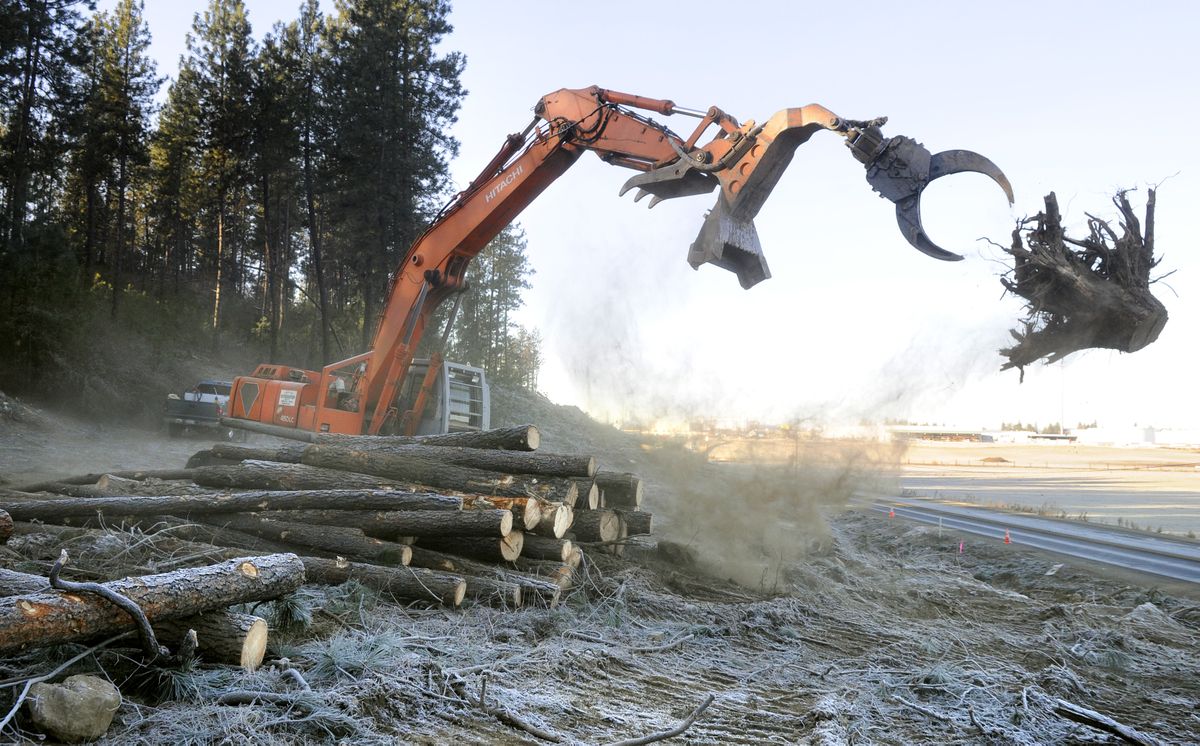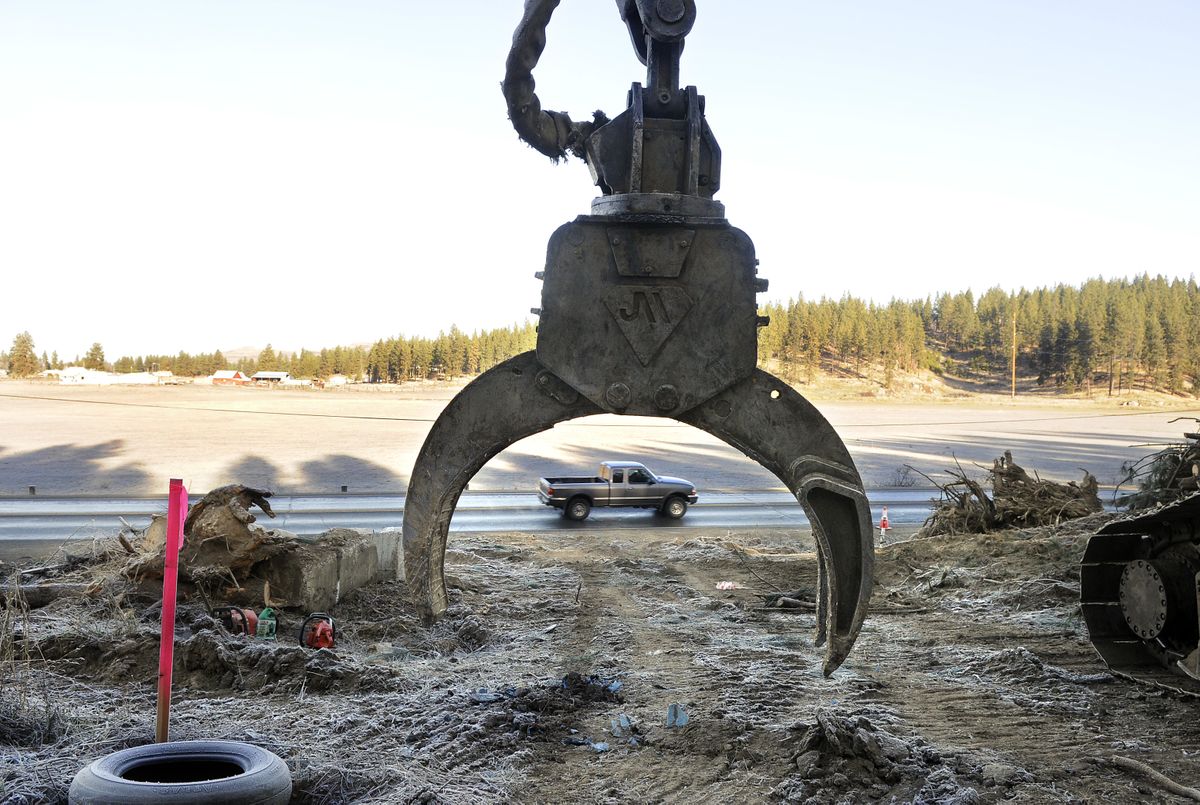Bigelow Gulch project begins
Lawsuit no deterrent for county’s four-lane plan
Tim Davison, of Diversified Wood Recycling Inc., tosses a stump to another pile Thursday while clearing trees from along Bigelow Gulch Road east of Havana. (Dan Pelle / The Spokesman-Review)
Spokane County commissioners are plowing ahead with a plan to widen Bigelow Gulch Road despite a federal lawsuit that could block or delay federal funding for the project.
Earth work began recently on a 3,000-foot section at the west end of Bigelow Gulch Road from Havana Street to just west of Palmer Road. The $2 million contract with Scarsella Bros. Inc., of Seattle, involves widening the two-lane road into a four-lane arterial with a continuous median strip and paved left-turn lanes. Paving is scheduled to occur next spring.
It is the first leg in an 8.2-mile, $58 million proposal to build a four-lane corridor connecting Francis Avenue on the north side of Hillyard with Forker Road and then to Sullivan Road in Spokane Valley.
The county has been counting on $2.1 million in federal funds for the first phase of the project out of a total first phase cost of $3.4 million, according to public records. Ultimately, federal funds would total $12 million.
But a group of residents living along Bigelow Gulch Road has filed a lawsuit through the nonprofit Center for Justice in Spokane challenging its environmental analysis under federal law. The suit in U.S. District Court in Eastern Washington names federal transportation agencies as defendants and seeks to stop the project pending an extensive environmental review. The county was not named as a defendant.
Rick Eichstadt, attorney for the plaintiffs, said that the lawsuit will likely hold up federal funding, and that county commissioners are taking a financial risk in moving ahead. He said he hopes to have a judge’s ruling in about 12 months.
County Commissioner Todd Mielke, whose district includes Bigelow Gulch Road, said commissioners were aware of the lawsuit, which was filed in October, when they voted in early November in favor of a resolution awarding the contract to Scarsella.
Mielke said that the county is committed to moving ahead with the project despite the threat to federal funding. The county plans to use other transportation funds for the first phase pending the outcome of the lawsuit, he said.
A budget sheet on the project identifies a series of loans, grants and local funds in addition to federal money. The Bigelow Gulch Urban Connector Project was identified by the state as needed for freight mobility.
“Bigelow Gulch is a priority whether the federal government participates or not,” Mielke said.
Mielke cited safety concerns for his decision. More than 500 accidents occurred on the roadway from 1994 through October 2006, with at least six fatalities.
Residents of Orchard Prairie argue the project would damage the rural character of the farmland along Bigelow Gulch Road and could open the door to suburban development there. “They are going to take a huge amount of cropland with this project,” said Don Hamilton, a resident of the area.
Hamilton and others in the Prairie Protection Association also contend that the connector would create a de facto freeway link to the North Spokane freeway’s initial segments, which are set to open in stages in 2009 and 2011, and which end on Freya Street near Bigelow Gulch Road. The city of Spokane is widening Francis from Freya to Havana as part of the corridor improvements.
Hamilton said county agents have been using pressure tactics in an effort to get landowners to sell their property for the widening.

